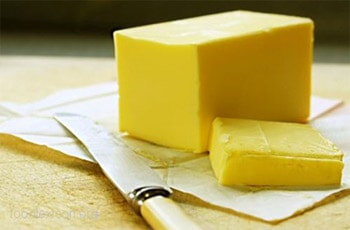8 foods rich in healthy bacteria
Beneficial bacteria play an extremely important role in our health. It can protect the balance of microorganisms in the intestines. In addition, these beneficial bacteria also help strengthen intestinal health, improve resistance, and prolong life. Below are 9 foods considered the best "tonic" for beneficial bacteria in the body.
Beneficial bacteria play an extremely important role in our health. It can protect the balance of microorganisms in the intestines. In addition, these beneficial bacteria also help strengthen intestinal health, improve resistance, and prolong life. Below are 9 foods considered the best "tonic" for beneficial bacteria in the body.
1. Cheese
Not all cheeses are a good source of probiotics, but some soft, fermented cheeses like cheddar, Swiss, Parmesan, etc. are rich in good probiotics. The probiotics in cheese can survive in your gut, continuing to fuel your health.
These cheeses are made by lactic acid bacteria fermenting milk for days, weeks, or even years, a process that also creates probiotics. Some soft, dry white cheeses labeled “active ingredients” also contain probiotics.
2. Butter
This food is not made from fermentation, it is made from lactic acid fermentation and beneficial bacteria.
But what you need to understand: Cooking avocados can kill the beneficial bacteria in them, so it’s useless for baking. Eat them raw or chilled, or add them to salads and as a side dish.

Illustration photo
3. Wine
Like pistachios, wine contains prebiotics that help the beneficial bacteria in the body get nutrients.
According to many studies, drinking 2 glasses of wine a day will increase the number of beneficial bacteria in the intestines significantly after 4 weeks. Wine contains many polyphenols, strong antioxidants and alcohol essences that can be the cause of nutritional supplements for beneficial bacteria.
4. Soybeans
Soy sauce is a finished product made from soybeans, has a more aromatic and rich flavor than tofu, and contains twice the amount of protein.
Nutritionists say organic or non-GMO labeled soybeans are better for you. Genetically modified soybeans can cause allergies, inflammation, and even increase the risk of cancer, and they may be sprayed with pesticides.
5. Kombucha
Natural food stores and grocery chains carry bottled or jarred kombucha tea. It has flavors of berries, ginger, and mango, and because of the added sugars through fermentation by bacteria and yeast, it has a natural soda flavor.
Although it is said that it can cure many diseases, it has not been proven by research results. However, you can drink a cup of tea to improve your health. Compared with regular soda, its calories are less than half, and the sugar content is only 1/4 of soda. Moreover, due to the fermentation process, this tea also contains many beneficial bacteria for the body.
6. Pistachios
Pistachios are a top snack choice: Eating 50g – 100g of pistachios every day can increase the number of beneficial bacteria in the intestines. The seeds themselves do not contain probiotics, only prebiotics.
7. Kimchi
Kimchi is increasingly appearing on menus today. Corn only needs to be soaked in salt to ferment, calling for the help of beneficial bacteria. Kimchi, in addition to being beneficial for intestinal health, is also rich in vitamins and can prevent infectious diseases because it has beneficial bacteria that develop during the salting process.
8. Bananas, oats, oatmeal
These three foods do not contain probiotics, but they are rich in prebiotics. They are all complex sugars, and most importantly, they stimulate the growth of beneficial bacteria, rather than harboring harmful bacteria that cause disease or have bad activities.
These dishes can be a delicious breakfast, can help supplement nutrients for beneficial bacteria in our digestive tract, and improve intestinal health.
According to Tri Thuc Tre - NM
